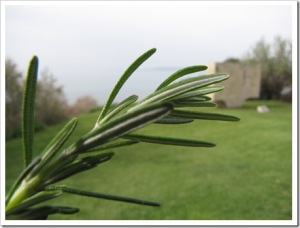Brooke and Ryan are expecting their third child next month, who will be a brother or sister for Alexander, called Alex, and Charlie. Brooke wonders if they already have a problem, because they chose a formal name with a nickname, and then a nickname as the full name.
Brooke’s favourite choice for a boy is Hugo. Although Ryan also likes the name, his favourite is Banjo. Brooke likes Banjo, but isn’t sure whether she is daring enough to use it. Other names they have thought of are Frank, and Fred (maybe short for Frederick?)
For a girl’s name, which Brooke is finding harder, she would like a traditional vintage-style name, but doesn’t want anything too popular. So far she likes:
Olive – Brooke imagines a lot of other people might not like it, and as she’s a chef she wonders if it’s too much having a food name; maybe in the middle?
Pearl – this would be the baby’s birth stone, so a nice link
Rose
Isabel, Isobel or Isabelle – Brooke doesn’t know which spelling she prefers, and thinks it might be too popular. However, it is Ryan’s favourite name for a girl
Maeve
Mabel
Maisie – loves it, but it has the same ending as Charlie
If it’s a boy, the middle name could be Bradley, which is a family name. If it’s a girl, Brooke would like to use Audrey, to honour a relative, but she could also use Emily, a family name from an earlier generation. Florence is another possible family name.
Brooke doesn’t want a name that starts with A or C, or sounds too similar to Alex and Charlie. Her main concern is that she’s not sure whether to choose another long name that has a nickname, like Alexander/Alex, or another nickname that’s a full name, like Charlie.
Brooke and Ryan have a surname vaguely like Schneider.
* * * * * * * * * * * *
Brooke, I don’t see it as a big problem that you have an Alex, short for Alexander, and a Charlie. I don’t think you have to consciously choose or reject one or the other type of name for your third child, and there’s no “name police” that will come down on you for mixing and matching a formal name with a nickname. There are plenty of families who do this, and I promise nothing terrible happens to them!
You can pick a name like Hugo, which doesn’t usually have a nickname – Alex, Charlie, and Hugo sounds just fine. Or you could pick a name like Banjo, which is a nickname, but not short for anything, so would be a third type of name – Alex, Charlie and Banjo is nice.
Frank and Fred (possibly short for Frederick) are also worth considering. I know neither of them are a favourite name, but there have been so many parents lately choosing a name for their child that wasn’t a front-runner on their list that I would not discount them.
Frank is handy because it’s not necessarily a nickname (it’s a name in its own right), but is often used as a nickname, so it bridges that gap between Alexander and Charlie. Fred is cute, and if you wanted to use Frederick as the formal name, then Alexander, Charlie, and Frederick works great – it even sounds quite royal.
I love all the girls names that you have chosen. It does sound as if you are having serious doubts about Olive, but it could make a wonderful middle name if you decide not to go with Audrey, Emily or Florence.
If you love the V sound in names, then Maeve might be a good replacement with no obvious food associations (although I think it literally means “mead”, the drink). Maeve Audrey, Maeve Emily and Maeve Florence all sound nice.
Pearl is very pretty, and if the baby arrives in June, then the link with the birth stone would be a bonus. Names that mean “pearl”, such as Margaret, Margot or Lulu would also fit the birth stone. Pearl Florence is darling.
I’m wondering if that was the thinking behind Rose as well, because that is usually given as the birth flower for June. It’s very pretty, and Rose Audrey is sweet, but to me this is quite hard to say with your surname. It could work as a middle name though.
Mabel is lovely, and has the advantage of being a nickname that is nearly always used as the full name, so is another gap-bridging name. Mabel Emily and Mabel Florence seem especially nice.
I don’t think it’s a huge issue that Maisie ends with the same sound as Charlie, but would it help if her name was Margaret, nicknamed Maisie? Or would plain Mae fit the bill? (I feel as if we are back to Maeve by this point).
I think Ryan has made a good choice too, with Isabel. If you wanted the least common spelling, then I would go with Isobel – this is also a Scottish name which seems like a nice match with Alexander and Charlie, wihich have strong Scottish associations. If you wanted a more “vintage” feeling, then I would pick Isabel, which was more popular in times past. Isabelle is the most popular spelling today. Isabel Audrey and Isabelle Florence are nice, although if you wanted to go down the birth stone route, Isobel Pearl seems rather charming.
Don’t worry any more about having an Alexander and a Charlie – whatever you pick will work fine. You needn’t feel that you must pick a nickname or a name with a nickname to fit in. I can tell you are more excited about choosing a girl’s name, which is understandable after two boys. If it’s harder for you, it sounds as if that’s because there’s more names you are interested in using. I would just enjoy all the choice!
UPDATE: The baby was a girl, and her name is Pearl!
POLL RESULTS: The public’s choice for a boy’s name was Hugo (53%), and for a girl it was Isobel/Isabel/Isabelle (22%), although Pearl was close behind on 20%. The favourite spelling of Ryan’s choice of name was Isobel, which more than half of respondents voted for (52%).










